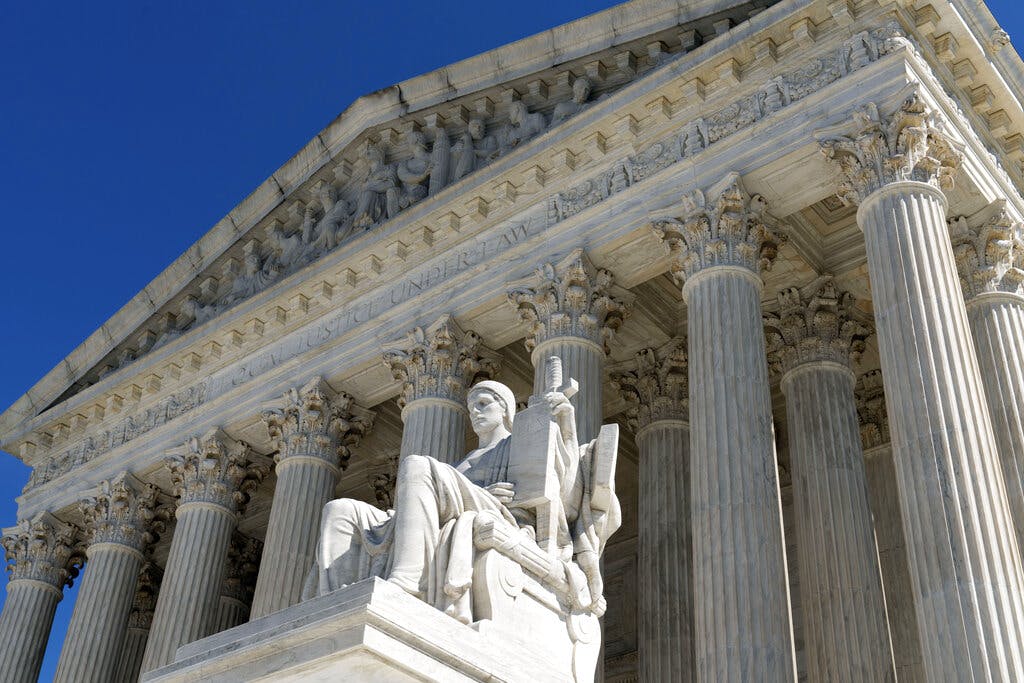One of America’s Liberal Legal Lions Breaks With Biden, Urges Supreme Court To Decide on Theory That Could Rewrite Election Law
A former acting solicitor general gambles that the Independent State Legislature theory is too exotic even for this precedent-defying high court.

Liberals see the Independent State Legislature theory, which would deny state courts any role in reviewing how states conduct federal elections, as a dangerous conservative concoction and a threat to American democracy. Its present prominence is tied to allegations of unlawful gerrymandering, and it could yet upend the 2024 election just as President Trump mounts another bid for the White House.
Why, then, is one of America’s most prominent liberal lawyers, Neal Katyal, a former acting solicitor general under President Obama, urging a solidly conservative Supreme Court to take up the theory — a position shared by those conservatives seeking its endorsement by the court — just at the moment when the court appears poised to set it aside?
That is the question raised by a supplemental letter filed by Mr. Katyal at the Supreme Court in the case of Moore v. Harper. The case arises from a North Carolina controversy that is the vehicle by which the Independent State Legislature theory reached the high court, in a case heard this fall but for which a decision might never be issued.
In other words, could Mr. Katyal, who has argued 50 cases before the high court — including this one — be baiting the justices into a ruling that would allow conservative statehouses to set their own rules of the road when it comes to election procedures?
The Biden administration appears unwilling to take that risk, urging the justices, who have sought guidance from the parties as to whether the case is still viable, to let it be. For Solicitor General Prelogar, the risk that the justices could endorse the Independent State Legislature theory is greater than the likelihood that they could neuter it.
Moore first arose when the North Carolina supreme court struck down, by a 4-to-3 vote, maps generated by that state’s legislature on the grounds that they violated the Voting Rights Act, and were infected with racial gerrymandering. The North Carolina speaker of the house, a Republican, penned a successful petition for a writ of certiorari to the Supreme Court.
The theory’s constitutional ballast is the Constitution’s Elections Clause, which assigns the role of ascertaining the “Times, Places and Manner of holding Elections for Senators and Representatives” to the “Legislature thereof.” Advocates for the theory argue that this is an exclusive grant to state lawmakers, insulated from review.
Moore’s fate is in limbo because of elections that have brought conservative judges to power on the Tar Heel State supreme court. They now form a 5-to-2 majority instead of a 3-to-4 minority. In a slap at stare decisis, the new bloc reversed its predecessors and restored the maps churned out by the legislature.
In a 146-page decision, the new majority wrote that it is “not within the authority of this Court to amend the constitution to create such limitations on a responsibility that is textually assigned to another branch,” and added that “the constitution does not require or permit a standard known only to four justices,” meaning those who originally voted to overrule the legislature.
The matter of maps, the new majority rules, belongs to the “legislative branch, not the judiciary.” As a lower court explained in this spirit before being overruled, districting, which flows from the decennial census mandated by the Constitution, “is one of the purest political questions, which the legislature alone is allowed to answer.”
Even if the Supreme Court adopts the Independent State Legislature theory, federal courts would still be able to review state action. However, there are far fewer federal courts, and their supervisory efficacy would be patchwork. That worries many on the left, who fear a rollback in policy and practices that date from the civil rights era.
Mr. Katyal’s letter is written on behalf of an election watchdog group, Common Cause. It argues that the Independent State Legislature theory “calls into question hundreds of state constitutional provisions.” He argues that “the dispute over that theory must be resolved in time to prepare maps, ballots, and election rules well in advance of the 2024 elections.”
Common Cause argues that the theory “implicates fundamental questions of self-governance and our constitutional structure” and that the Independent State Legislature theory “has contributed to growing public doubt about the lawfulness and integrity of federal elections.”
If not addressed now, Mr. Katyal argues, “this issue will recur every two years,” when federal elections are held. That is, he maintains, an “untenable dilemma.” In oral arguments, he told the justices that deciding to support the Independent State Legislature theory would create a “blast radius” that could immolate constitutional guarantees.
Such language, though, could well dissuade the justices from issuing any ruling at all. They turned away from the battle over election rules in the run-up to the 2020 election, when pro-Trump factions feared they were being outmaneuvered by the Democrats in laying the groundwork for the vote that made Joseph Biden president.

